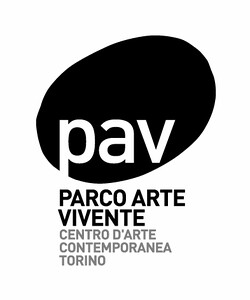Weed Party III
November 4, 2018–February 24, 2019
Via Giordano Bruno 31
10134 Turin
Italy
T +39 011 318 2235
Curated by Marco Scotini
PAV Parco Arte Vivente presents the first Italian solo exhibition of the Chinese artist Zheng Bo (Beijing, 1974) that will open on Saturday, November 3, 2018, within the framework of Artissima. The exhibition, curated by Marco Scotini will inaugurate the new exhibition season dedicated, in particular, to the relationship between ecology and art from the Asian continent.
A careful investigator of the relationship between plants, society and politics, Zheng Bo is one of the most interesting Chinese artists of the younger generation. He was among the participating artists at Manifesta 12 in Palermo and, has recently exhibited at the second Yinchuan Biennale. He is also involved in the next Taipei Biennale that opens in November. In his series of works “Propaganda Botanica,” Zheng Bo makes use of historic Marxist slogans recreating them by using plants in order to expand notions such as “equality,” “workers” or “socialism” beyond the human sphere. His last slogan, “Earth Workers Unite,” created for the Yinchuan Biennale and consisting of 370 planted poplar trees, leaves open the possibility of a two-fold interpretation: not so much that it is the workers of Planet Earth who are uniting (according to the orthodox version) but more that an association against common exploitation should become possible between the Earth and its workers.
Since 2003, Zheng Bo’s socially involved, artistic practice has been concerned with ecology, participatory projects, marginalized communities and gender themes. The frequent use of the wild plants typical of urban environments—and conventionally considered as weeds—connects his work to political metaphors where that which is disliked, abandoned, forgotten or “out of place” becomes a significant ecological force for spreading the culture of resistance and resilience. Extended to a number of cities over the past decade, his project with weeds has taken on different titles, such as Weed Plot (on the roof of the Sifang Art Museum in Nanjing), Weed Commons (for the Times Museum in Guangzhou) and Weed Party (a currently running series begun in Shanghai in 2015 and now arrived at the PAV). In this latest project, the artist tries to imagine a post-human political party where human beings and extra-humans are no longer separated the one from another.
The Weed Party created for the PAV becomes its third reincarnation after the weed and land garden made for the interior spaces of the Shanghai Leo Xu Projects of 2015 and the work on ferns for TheCube Project Space in Taipei of 2016. In these series of exhibition episodes, Zheng Bo investigates the relationship (way beyond being just a metaphor) between the uncontrollable nature of spontaneous, political movements and the infesting and ineradicable power of so-called parasitic plants.
A large scale installation/garden, After Science Garden, lies as a physical and conceptual center of the PAV exhibition, created ad hoc for the area of the contemporary art center’s greenhouse and developed in a dialogue with the territory, both from a botanical point of view and through the interaction with local activists and researchers, with whom the artist imagines the possible configurations of future social and ecological movements. The itinerary continues with the graphic herbariums, Survival Manual I and II, the result of research into the relationship between the natural world and survival from a historicized perspective, the same perspective from which the unprecedented reading of Chinese communist internationalism in Paris, providing substance to the maquette, A Chinese Communist Garden in Paris, begins. The exhibition concludes with two films from the Pteridophilia cycle (the last part of the trilogy will be presented at Taipei) that explores the potential of eco-queer theories, showing us seven, young men in intimate relationships with various kinds of ferns in a Taiwan forest.
The exhibition has been staged with the support of the Compagnia di San Paolo, the Fondazione CRT, the Regione Piemonte and the City of Turin.


